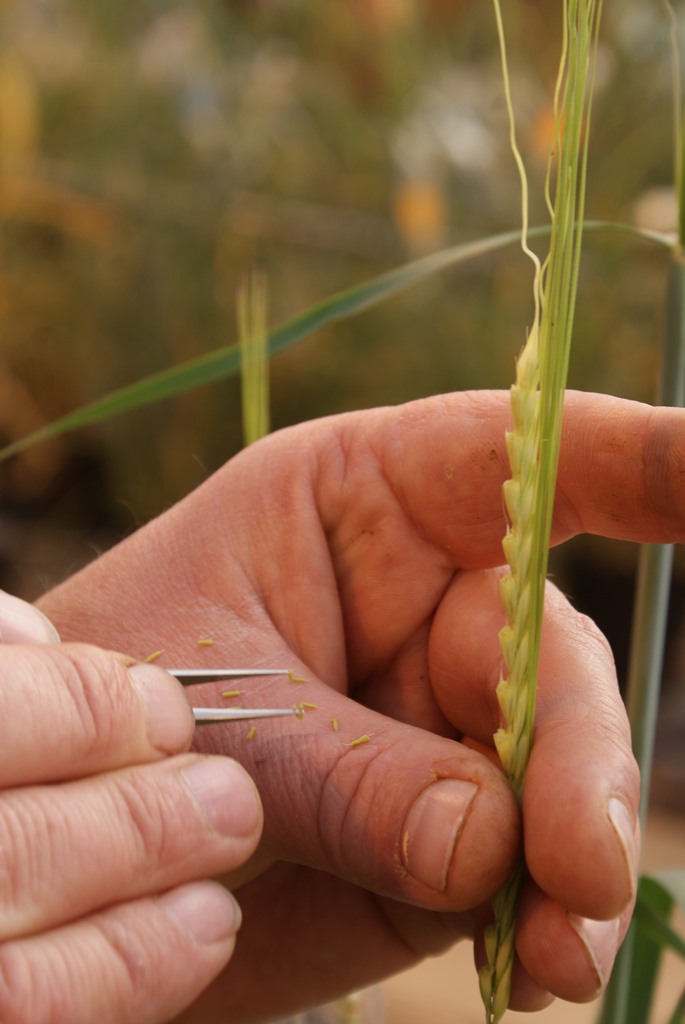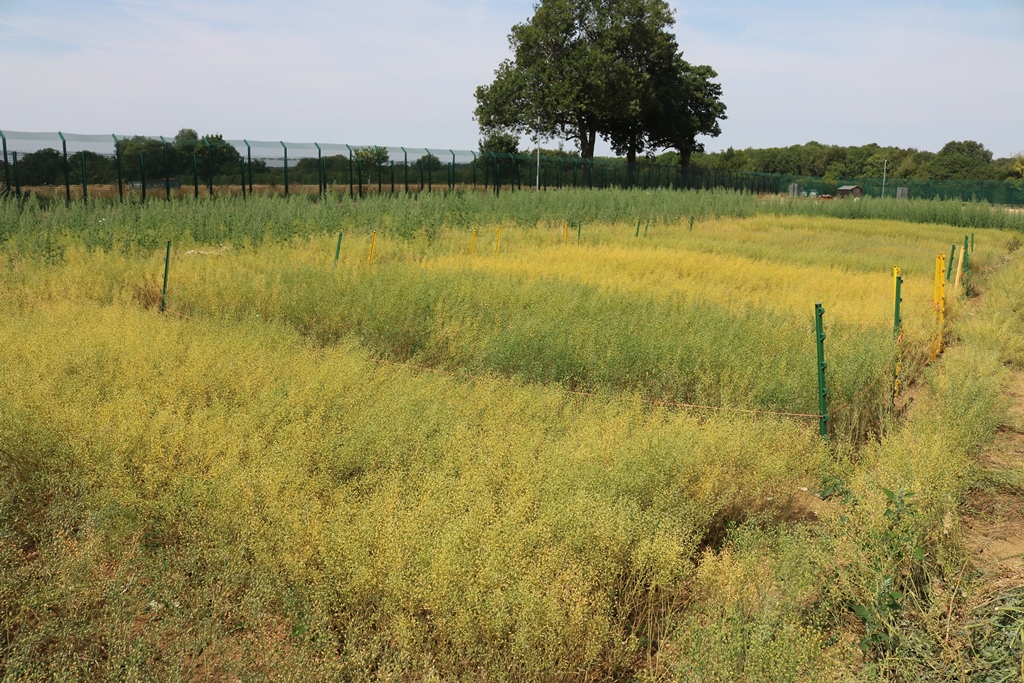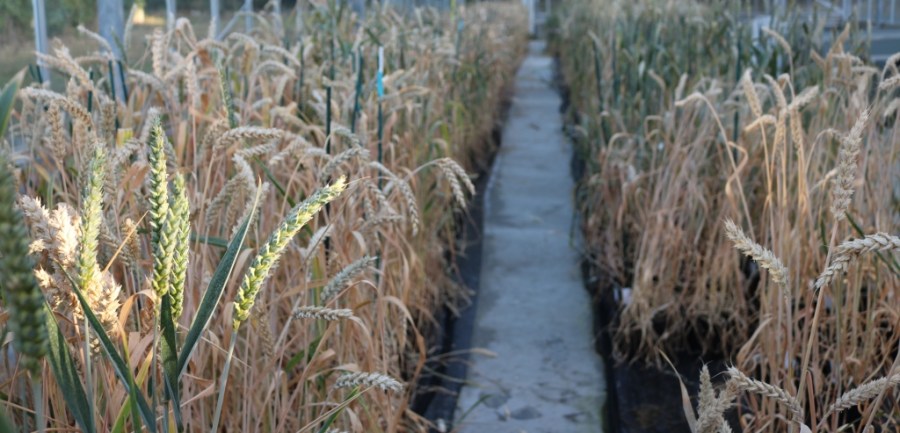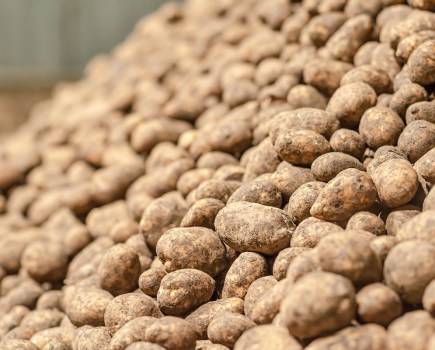A new government may herald a new dawn for new breeding technologies, but the way ahead is far from clear. CPM draws together the latest research and political mood.
It feels like our research currently has the handbrake on.
By Tom Allen-Stevens
Almost a year to the day after the Court of Justice of the EU delivered its body blow to plant science across Europe, Britain’s new Prime Minister Boris Johnson stood on the steps of 10 Downing Street and appeared to throw UK scientists at least something of a lifeline.

Scientists argue the genetic edits are simply a precise and predictable way of inducing a change that could have occurred naturally.
The plant science in question involves new breeding technologies (NBTs). The ruling stated that organisms created using modern gene-editing (GE) tools, including CRISPR Cas-9, should be subject to the same stiff regulation as genetically modified organisms. It came as a shock to most scientists involved in the research – the majority of national authorities around the world have taken a different position on NBTs, treating them for the most part as conventionally bred.
Here in the UK, Brexit offers the opportunity to diverge from EU regulation, and Mr Johnson may be readying the nation to do just that: “Let’s start now to liberate the UK’s extraordinary bioscience sector from anti genetic modification rules and let’s develop the blight-resistant crops that will feed the world,” he said.
It could be viewed as a defiant stance on GM, while when it comes to GE, there have been repeated assurances from former Defra Secretary of State Michael Gove and Minister of State George Eustice that they disagree with the CJEU ruling. So CPM asked a direct question of current farming minister Robert Goodwill at Groundswell on what plans Defra has to enable UK farmers to use the technology and whether the government will seek divergence from EU legislation to allow research to take place.
“We do not agree that gene editing is the same as GM crops and we were disappointed that the European Court of Justice ruled against this,” he replied. “I believe there are tremendous opportunities to use gene-editing technology to improve the quality of the food that farmers produce, improve the resistance to disease and deliver other environmental benefits.”
He pointed to work taking place at John Innes Centre and the Sainsbury’s Laboratory in Norwich to develop gene-editing technologies in wheat and potatoes. “When we’ve left the EU we certainly want to ensure we do get more of this research done. It’s only accelerating normal selective breeding that might take place, capitalising on natural mutations. So I believe that this type of biotech has tremendous potential for improving the genetics for the next [generation of] crops we produce.
“When we leave the EU we will be in a position to be on the front foot again and I think we’ll also need to assure the markets we’re selling to that this is not something that they need to be worried about, given that most of the livestock feed in the country is produced using GM crops from America. I hope also that multinational companies see that the UK is a good place to come and do research. We have cutting-edge universities with amazing facilities – just the sort of place to come and do that research and we’ll be open for business.”
The Prime Minister’s comments have, somewhat predictably, been welcomed by the scientific community, on the whole. “A fresh look at the regulatory framework that has been holding back so many of the potential societal benefits the UK bioscience sector can offer to agriculture in the UK and globally is very welcome,” commented Prof Dale Sanders, director of the John Innes Centre.
“Among the many potential benefits from modern genetic technologies is dramatic reduction in agrichemical use, especially as this relates to pesticides and fertilisers. An approach to regulation based on what is produced rather than on technologies used to deliver the product would be very sensible.”
Prof Jonathan Jones, a leading scientist in gene-editing at The Sainsbury Laboratory, said he was encouraged to see scope for a more science-based regulatory framework for GM and GE crops highlighted. “We have great potential to use this technology to reduce the environmental impact of agriculture, by protecting crops using genes rather than chemical sprays, and I would welcome the opportunity to showcase the benefits of these methods to the world.”

Under current regulations, it’s unlikely UK farmers will even take part in field-scale trials of either the GE or GM lines currently under development.
A degree of caution comes from Prof John Dupre, of the Centre for the Study of Life Sciences, University of Exeter. “While Mr Johnson is right that there are genuine and perhaps exciting possibilities for genomically modified crops, he is quite wrong to suppose that these should be “liberated” from serious review of the consequences of their introduction and regulation of their use,” he said.
“Even with the latest genome-modification techniques it takes a great deal of work to make sure that only the desired changes have been induced. Are we doing enough to maintain the crop diversity that is likely to become increasingly vital as the environment undergoes rapid change?”
So just what sort of regulatory environment is required and what will be the implication for farmers, and ultimately consumers, who lie at the heart of this debate? CPM has exclusive access to a survey of progressive farmers, some of whom have been involved with GM crops in the past, and many currently undertaking on-farm trials.
Despite the political impetus that NBTs are gathering and the farmer support for the technology, chief executive of Rothamsted Research Prof Achim Dobermann argues for a differentiated approach and believes commercial appeal is needed to ensure a smooth pipeline from research to use in farming.
“It won’t be helpful for scientists to be dragged into a non-EU Brexit debate – that’s an argument for politicians. Nor will just accepting GM or GE solve the fundamental problems of how to feed a growing population sustainably. But the immediate issue to address is to create a sound and pragmatic solution for gaining more impact from these new technologies.”
Achim is looking for two aspects to be considered in particular: Trait-based deregulation, similar to the position taken by Canadian authorities, and legislation that is differentiated in terms of where it is applied (crops, microbes, animals, humans).
“In Europe, there’s too much focus on the technology used, rather than the nature of the trait this provides. We should have regulation that encourages development of genetically engineered crops that meet the highest standards in terms of providing a significant and proven advance in productivity, nutritional value and/or environmental impact.
“Legislation on genome editing that is differentiated takes account of both scientific evidence and ethics. There are different considerations for humans and animals compared with crops or microbes, for which ethical issues may be less of a concern. The whole UK science community would welcome an opportunity for supporting the new government in finding the right balance.”
One restriction for science under current GMO regulations, however, is the treatment of field trials. Under international breeding regulations, designed to protect Plant Variety Rights, any new crop variety has to go through a tightly regulated trials regime. Only then can it be accepted onto the EU Common Catalogue and sold commercially, for example.
If it’s GM, an additional licence to release it to the environment in field trials in the UK must be sought through ACRE, the independent advisory group appointed by Defra, which incurs additional time and costs. The EU regulations are seen as overburdensome and partly to blame for the tiny handful of applications that have come forward to EU authorities, compared with many parts of the world where GM technology is now ubiquitous in some crops. The fear is that similar regulations, now applied to gene-editing under the CJEU ruling, will hamper progress for all NBTs.
Rothamsted and JIC are the only organisations in the UK to have applied to ACRE for GM-crop field trials this year. Rothamsted was also the first to conduct GE trials in 2018 and has further expanded field testing this year, says Achim. So why haven’t more followed suit?
“In principle, the research is not in any way hampered by the regulations – it’s not a considerable cost and the regulations are clear to implement within a field trial protocol. The bigger problem may be a certain reluctance or inexperience by scientists to pursue the field-trials stage and of institutions to familiarise themselves with the process of seeking permits. A change in regulation would help, but what’s needed is a clear path to market for the research – that would lead to a boost in private and public funding that would prompt more scientists to bring their innovations out into the field.”
For Dr Johnathan Napier, responsible for Rothamsted’s GM trials, the point at which innovations migrate from lab to field is a critical bottleneck for all research. “Field trials are an essential part of the discovery process. Gene-editing is such a potentially transformative technology and it worries me that academic colleagues baulk about going into the field with edited plants,” he says.
“You can prove a GE plant has particular properties in the lab, but it’s complicated genetically and essential to evaluate at an early stage how it interacts with the relatively brutal environment that a field trial presents. This is an essential step to de-risk your innovation – to demonstrate that your edited plant performs in the real world.”
Rothamsted’s learned some good lessons here – several years ago its GM aphid-resistant wheat research was concluded after the trait failed to deliver in a field trial. “Nevertheless, we went ahead and published these negative results, as part of the necessary and rigorous scientific learning process. Just last year, also affected by dry weather, the same occurred with one of the GE camelina constructs currently on trial. The plants looked okay in the lab, but were awful in the field. We’re hoping to have more success with this year’s lines.”
The trial sits alongside a GM crop that’s high in omega-3 long chain polyunsaturated fatty acids. These are the ones said to confer health benefits in areas of coronary heart disease and neurodevelopment – so-called fish oils. “The GE lines make the oil more mono-unsaturated, so are distinct from the GM lines which are the only plants that can make the omega-3 fish oils,” explains Johnathan.
But it’s unlikely UK farmers will benefit from or even get to test in field-scale trials either the GE or GM lines. “As a crop it has huge opportunities. This is no niche or alternative crop – camelina was a widely grown oilseed right across Europe 100 years ago. This is a UK-produced technology, and we’d love UK farmers to be the ones to test it in the field, but the current regulations for commercial release – and the cost associated with that – may mean that’s unlikely to happen.”
And this is the opportunity UK farmers are missing out on, feels NFU combinable crops board chairman Tom Bradshaw. “This is an example of a technology that can deliver for society as well as for farming. We know that there are traits in breeding lines that never make it to market because it’s simply too costly or risky for breeders to develop them. CRISPR should be made available to UK breeders to make these developments more accessible and put the traits where they belong – on British farms in the hands of UK growers.”
But is it natural?
At the heart of the debate around NBTs, or new plant-breeding technologies (NPBTs) as they’re often known, is whether a whether a mutation could have occurred naturally.
Organisms classified universally as GM have generally experienced transgenesis, where DNA from another species has successfully been combined into the genome of the host plant. This confers a new trait, such as herbicide tolerance or longer shelf life.
Cisgenesis is where DNA is artificially transferred between organisms of the same species, such as from a wild relative to an elite potato variety to confer blight resistance. Although in theory this could occur naturally, in Europe it’s still classified as GM as nucleic acid sequences must be isolated and introduced using the same technologies that are used to produce transgenic organisms.
Mutagenesis is a change or edit in the plant genome that confers a new trait. Such mutations occur naturally every day, when a plant comes under stress, for example. A small change in the genome may switch off the activity of a particular gene which allows or inhibits a property, and it’s these phenotypical changes breeders have sought out for generations to progress their lines.
For decades, scientists have induced mutagenesis to bring about new traits, using chemicals or radiation, and the Clearfield trait is an example. More recently, more precise gene-editing techniques such as CRISPR-Cas9 have been introduced. CRISPRs are short RNA sequences introduced into the host plant that recognise a specific stretch of genetic code. Cas9 enzymes partner these sequences and cut the host DNA at specific locations.
The cell tries to repair the damage, and that’s when the mutation occurs. By using different enzymes and techniques, researchers can deactivate or alter – edit – specific parts of the genome, thereby conferring traits.
The controversy comes over whether this is natural. Scientists argue the genetic edits are simply a precise and predictable way of inducing a change that could have occurred naturally. But under EU law, since the process involves the introduction of foreign RNA, even though the RNA is not present in the final plant material, this classes current forms of CRISPR as GMO.
In an extra layer of controversy, the CJEU ruling exempted older forms of mutagenesis, such as chemicals and radiation, as these, says the court, are established and deemed to be safe. By the same ruling, the CJEU has deemed all future forms of induced mutagenesis will be classed as GM, however.




